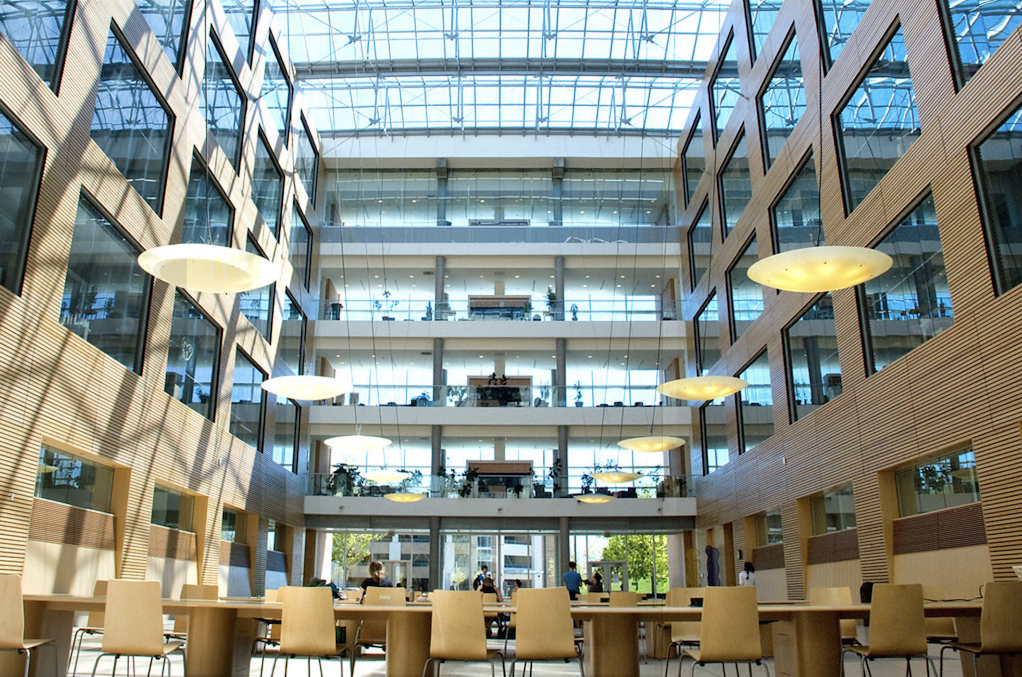
How pathogens threaten biodiversity and wildlife health as the climate changes.
Part of our April is Earth Month series
By AJ Dolman
When Kayla King was growing up in Nanaimo, British Columbia, every day felt like Earth Day.
“BC is a great place to be immersed in nature,” she says. “There are pictures of us camping from when I was a baby all the way through to as a teenager.”
King remembers spotting seals, eagles and even bears on these family adventures.
“I developed an appreciation for nature that you might not get if you don’t have regular contact with the wilderness,” she says.
As the Canada Excellence Research Chair (CERC) in Evolutionary Dynamics of Host-Pathogen Interactions, King now works to deepen our understanding of how pathogens can rapidly evolve, affecting animal survival and biodiversity. She is based at The University of British Columbia (UBC), where she heads the King Lab, a hot spot of thinking about biodiversity and climate change in infectious disease evolution.
“The big, overarching question that we’re asking is: Is a warmer world a sicker world?” says King.
It’s a critical question at a critical moment. Climate change is causing extreme heating, and altering the distribution of pathogens, while associated human activity and biodiversity loss are increasing human-animal contact. These factors could contribute to infectious diseases becoming more prevalent.
In the lab, King and her team use “evolution experiments” in animal-pathogen models, as well as state-of-the-art genomics, computational analysis and mathematical theory in a global change biology framework. They published research in 2024 that shows warming temperatures can make pathogenic infections more virulent. Discoveries like this can be used to inform wildlife conservation and get ahead in the race against future pandemics.

King was abroad for 17 years, including a decade as a professor at the University of Oxford, before moving back to BC in 2023. She was thrilled at the opportunity to come “home” to UBC, where she had earned her biology undergraduate degree.
“UBC is one of the best institutions for my field of evolutionary biology, and it has a brilliant mix of colleagues who are experts in infectious disease, biodiversity and climate change,” she says. “This is where I needed to be.”
The importance of infectious disease evolution research has crystalized in the years since the COVID-19 pandemic started. Today, the public has a good general sense of the speed at which variants of a pathogen can emerge and spread. King’s research helps shed more light on what to expect in different scenarios.
One experiment King and her team are running right now tests how pathogens might evolve if animal hosts bring them farther north with climate change.
King asks, “What kinds of variants are we going to see? Will more virulent variants or more transmissible ones emerge? We want to know, particularly for pathogens with the potential to jump to livestock or humans.”
She is also posing a second set of questions, around the co-evolution of animals and pathogens. We know pathogens can evolve to become better at infecting their animal hosts, and animal hosts can get better at resisting them.
“Now, we're trying to better understand how warming could disrupt this co-evolution,” says King, “and maybe put animals on the backfoot.”
Her third major query centres around biodiversity loss and conservation. For example, when an animal species is endangered, one thing conservation biologists can do is supplement the genetic diversity in the population—i.e., introduce new genotypes into that population. However, that can increase the density of the population, which is attractive to infectious diseases that easily hop from host to host.
This raises another important question for King: “Do the benefits of supplementing diversity offset the potential risks of increasing the density?”
King is excited about the team she has assembled at UBC to pursue these lines of inquiry and get to a place where they can make public policy recommendations. The King Lab is a diverse and interdisciplinary group that includes early career researchers and scientists from Canada and abroad.
“People come to my lab with backgrounds in field work, genomics analysis, mathematical modelling, and infectious disease research. This mix helps make our work novel and relevant,” she says.
King also works with collaborators in Europe and Africa, as well as from across North America, for her CERC research, and has presented at conferences in dozens of countries—reflecting the global importance of this work. She is the recipient of the Natural Sciences and Engineering Research Council Arthur B. McDonald prize, and was inducted into the Royal Society of Canada College of New Scholars, Artists and Scientists. She is also also one of the founding directors of PrePARE at UBC, a research cluster to Prepare for Pandemics through Advanced Research in Evolution.
This story was originally published on the Social Sciences and Humanities Research Council website.

